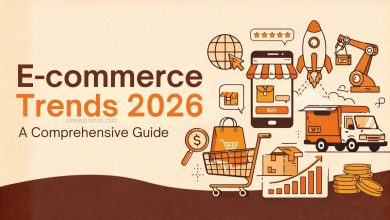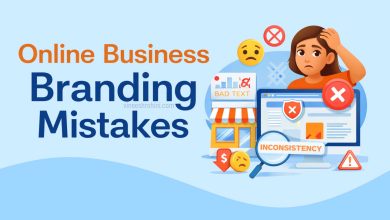What Is White Label ? Benefits and How It Works : Comprehensive Guide 2025
What Is White Label : In the fast-evolving world of online business, companies are constantly seeking innovative ways to grow, differentiate themselves, and offer better value to their customers. One such strategy that has gained significant traction in recent years is white labeling.
Table of Contents
But what exactly is white labeling, and how can it benefit your online business? Let’s dive into the details.
What Is White Label?

White labeling refers to a business practice where a product or service is created by one company but branded and sold by another. Essentially, the producer allows a third-party business to market and sell their offerings under the third party’s branding. The end customer typically has no knowledge of the original producer, as the product or service appears to originate from the company selling it.
Buy Now : How To Sell Plants Online ?
For instance, many software-as-a-service (SaaS) platforms offer white-label solutions. A company might develop a project management tool and allow other businesses to rebrand and sell it as their own. Similarly, in e-commerce, businesses can white-label physical products and resell them with their own branding.
How White Labeling Works
White labeling involves a simple yet effective business arrangement:
- Production: A manufacturer or service provider creates a product or service. This can include anything from software, physical goods, digital tools, or even content.
- Agreement: The producer enters into a partnership with a reseller. The agreement often includes terms regarding branding, pricing, and customer support responsibilities.
- Rebranding: The reseller customizes the product or service with their branding, such as logos, labels, and other design elements, making it appear as their own.
- Resale: The reseller markets and sells the product or service to their customers under their brand name. They typically set their own pricing and manage customer relationships.
- Support and Maintenance: Depending on the agreement, the original producer may provide ongoing support, updates, or enhancements for the product or service while the reseller focuses on marketing and customer interactions.
Benefits of White Labeling
White labeling offers numerous advantages for businesses looking to expand their offerings and grow their brand. Here are some of the key benefits:
1. Saves Time and Resources
Developing a product or service from scratch requires significant investment in research, development, and testing. By opting for white-label solutions, businesses can skip the time-consuming development phase and focus on marketing and sales.
2. Quick Market Entry
White labeling allows businesses to bring products or services to market much faster. Since the core product is already developed, companies can focus on rebranding and launching their offerings, saving months or even years.
3. Brand Expansion
With white-label solutions, businesses can expand their product or service portfolio without developing new offerings. This helps in strengthening the brand and catering to a wider audience.
4. Cost-Effective Solution
Developing a product in-house can be expensive, especially for small and medium-sized businesses. White labeling provides a cost-effective way to offer high-quality products or services without the need for heavy investment.
5. Customization and Branding
White-label solutions allow businesses to tailor products or services to align with their branding and target audience. This enhances brand recognition and fosters customer loyalty.
6. Focus on Core Competencies
White labeling enables businesses to concentrate on their core strengths, such as marketing, sales, and customer service, while relying on experts to handle product development and maintenance.
7. Revenue Growth
By offering additional products or services under their brand, businesses can create new revenue streams. This diversification can significantly boost profitability.
Industries That Benefit from White Labeling
White labeling is a versatile strategy that can be applied across various industries. Some of the key sectors benefiting from white-label solutions include:
- E-Commerce: Reselling physical products with custom branding.
- Software and Technology: Offering rebranded SaaS tools, apps, and software solutions.
- Digital Marketing: Agencies reselling white-label SEO, social media, or content marketing services.
- Financial Services: Banks and fintech companies offering white-labeled credit cards, loans, or digital wallets.
- Telecommunications: Internet service providers reselling white-labeled VoIP, broadband, or other telecom solutions.
- Healthcare: Reselling white-label health supplements, skincare products, or telemedicine services.
Challenges of White Labeling

While white labeling offers numerous benefits, it’s not without its challenges. Here are some potential drawbacks to consider:
- Limited Control: Since the product or service is created by another company, you have limited control over its quality, updates, or technical issues.
- Dependence on the Producer: Your business success is closely tied to the producer’s reliability. Any issues on their end could affect your brand’s reputation.
- Brand Differentiation: If multiple businesses are selling the same white-labeled product, it may be challenging to stand out in the market.
- Customer Support Complexities: Depending on the agreement, your business might be responsible for handling customer support, even for issues related to the original product.
How to Choose a White-Label Partner
To ensure the success of your white-label venture, it’s essential to choose the right partner. Here are some factors to consider:
- Quality Assurance: Verify the quality of the product or service to ensure it meets your brand’s standards.
- Reputation: Choose a reliable and reputable producer with a proven track record.
- Customization Options: Look for a partner that offers flexibility in rebranding and customization.
- Support and Maintenance: Ensure the producer provides ongoing support and updates.
- Pricing: Evaluate the cost of the white-label solution and ensure it aligns with your budget and profitability goals.
Conclusion

White labeling is a powerful strategy for businesses looking to expand their offerings, save time and resources, and grow their brand. By leveraging ready-made products or services, companies can focus on what they do best—building customer relationships and driving sales. However, it’s crucial to choose the right partner and carefully assess the terms of the agreement to ensure a successful and sustainable collaboration.
Buy Now : Ecommerce Website With 100 Products
Whether you’re an e-commerce entrepreneur, a digital marketer, or a technology provider, white labeling can open up a world of opportunities, enabling you to scale your business and achieve long-term success.
Keywords : What Is White Label – What Is White Label 2025 – What Is White Label business



